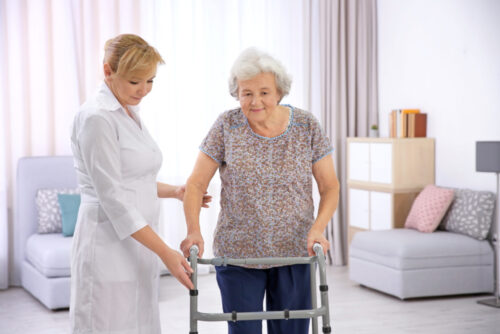
Residential living facilities provide many people with a new lease on life. Often, when someone is unable to cook or clean for themselves, or it’s no longer practical to do so, they will enter a residential living facility to get the level of care they need. That said, sometimes, staff and ownership of these facilities will fall short, and our loved ones will sustain injuries as a result of neglect or abuse. If you suspect your loved one is a victim of abuse in a residential care facility, our firm is here to help. Contact a dedicated California residential care facility abuse lawyer from Cowdrey Jenkins, LLP to learn more about what we can do for you. Here are some of the questions you may have:
What are some common signs of abuse?
Residential care abuse can take many forms, such as physical, sexual, psychological, or financial abuse. Some of the common signs of abuse include:
- Unexplained injuries or bruises
- Frequent infections or developing bedsores
- Poor hygiene or foul odors
- Changes in behavior or personality
- Fear, anxiety, depression, or isolation
- A sudden loss of appetite or frequent complaints of thirst
- Missing personal belongings
- Unauthorized withdrawals from bank accounts
If you notice any of these signs in your loved one, you should not ignore them or dismiss them as normal aging. They could indicate that your loved one is suffering from abuse and needs your help.
What should I do if I think my loved one is a victim of residential care abuse?
If you suspect that your loved one is a victim of residential care abuse, you should take several steps to document the incident(s) and ensure they receive the immediate medical care they require. If possible, do the following:
- Call 911 (especially if you think your loved one is in imminent danger). Law enforcement will arrive and send an ambulance to transport your loved one to a hospital for treatment.
- Take pictures of the abusive or neglectful condition(s) that caused your loved one’s injury.
- Ask anyone who may have witnessed the issue for their contact information.
- Notify nursing home ownership of the incident and report it either to the Long-Term Care Ombudsman CRISISline at 1-800-231-4024 or the California Department of Social Services at 1-844-538-8766.
- Finally, you should hire a seasoned elder abuse lawyer who can assess the circumstances of your case, determine whether you may have a valid claim, and, from there, fight to obtain all evidence needed to satisfy the burden of proof.
Our firm has fought on behalf of elder abuse victims for decades, and we are prepared to put our experience to work for you in your case as well. Contact us today so we can get started working on your claim.